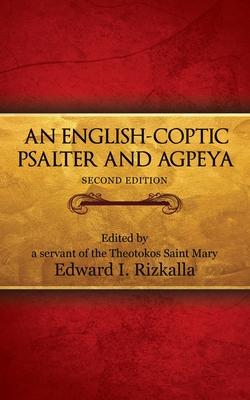The Second edition of this book has been extensively updated, revised, and expanded. The book presents: Part I, a complete Book of the Psalms, Part II, a Contemporary Prayer Book of the Hours, called the Agpeya in the Coptic language, and Part III retitled as "Stromata" or Miscellaneous, has been completely revamped and expanded to include new selections from the Old & New Testaments and Doxologies. The text is presented in both English and the Bohairic dialect of the Coptic language, according to the traditions of the Coptic Orthodox Church of Alexandria, Egypt. The Coptic language is in fact the last stage of the ancient Egyptian language. One of the major changes in the Second edition is its reliance upon the Septuagint (LXX) English translation for the Psalms and other selections from the Old Testament; however, selections from the New Testament continue to rely upon the King James Version (KJV). The Coptic text of the Psalms has also benefited from a new source that was not available to the scribe at the time of the First edition, and new material added in Parts II and III. The scribe also strived to use the scientific methods of enquiry to the maximum extent possible to come up with Coptic text and present it a friendly-user way. He used reliable sources based on available primary sources and compared them directly with the primary sources to obtain an accurate text. As ancient texts were written mostly without spacing in between the words and without the aid of modern punctuation marks, the scribe attempted to present the Coptic text using punctuation marks, as used in American English.

The Second edition of this book has been extensively updated, revised, and expanded. The book presents: Part I, a complete Book of the Psalms, Part II, a Contemporary Prayer Book of the Hours, called the Agpeya in the Coptic language, and Part III retitled as "Stromata" or Miscellaneous, has been completely revamped and expanded to include new selections from the Old & New Testaments and Doxologies. The text is presented in both English and the Bohairic dialect of the Coptic language, according to the traditions of the Coptic Orthodox Church of Alexandria, Egypt. The Coptic language is in fact the last stage of the ancient Egyptian language. One of the major changes in the Second edition is its reliance upon the Septuagint (LXX) English translation for the Psalms and other selections from the Old Testament; however, selections from the New Testament continue to rely upon the King James Version (KJV). The Coptic text of the Psalms has also benefited from a new source that was not available to the scribe at the time of the First edition, and new material added in Parts II and III. The scribe also strived to use the scientific methods of enquiry to the maximum extent possible to come up with Coptic text and present it a friendly-user way. He used reliable sources based on available primary sources and compared them directly with the primary sources to obtain an accurate text. As ancient texts were written mostly without spacing in between the words and without the aid of modern punctuation marks, the scribe attempted to present the Coptic text using punctuation marks, as used in American English.